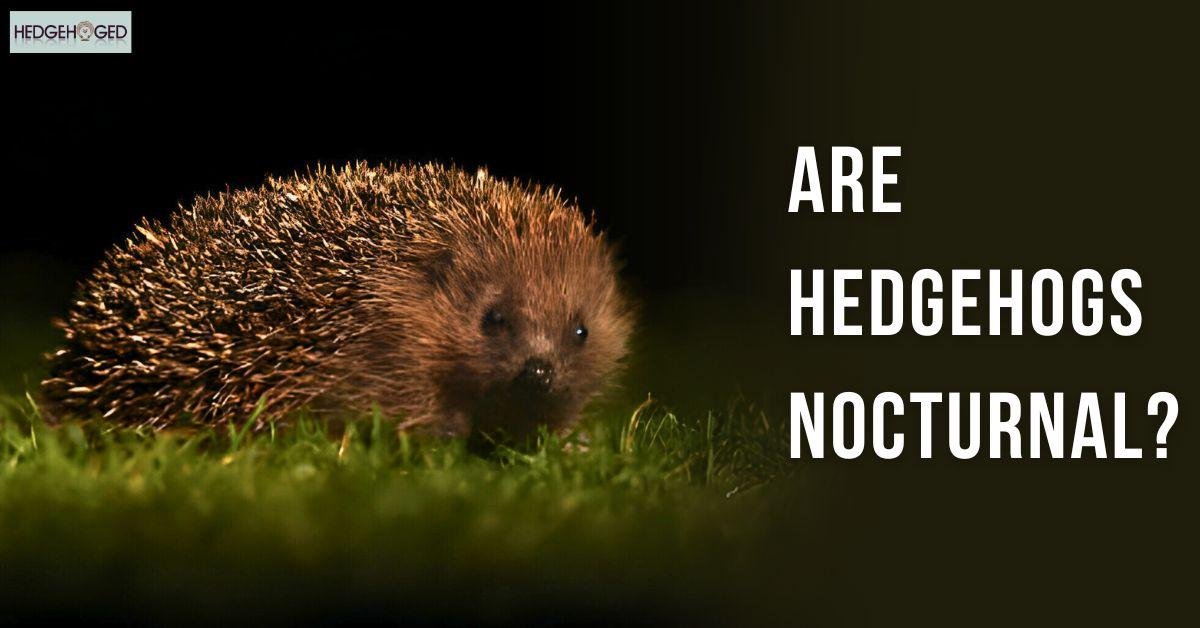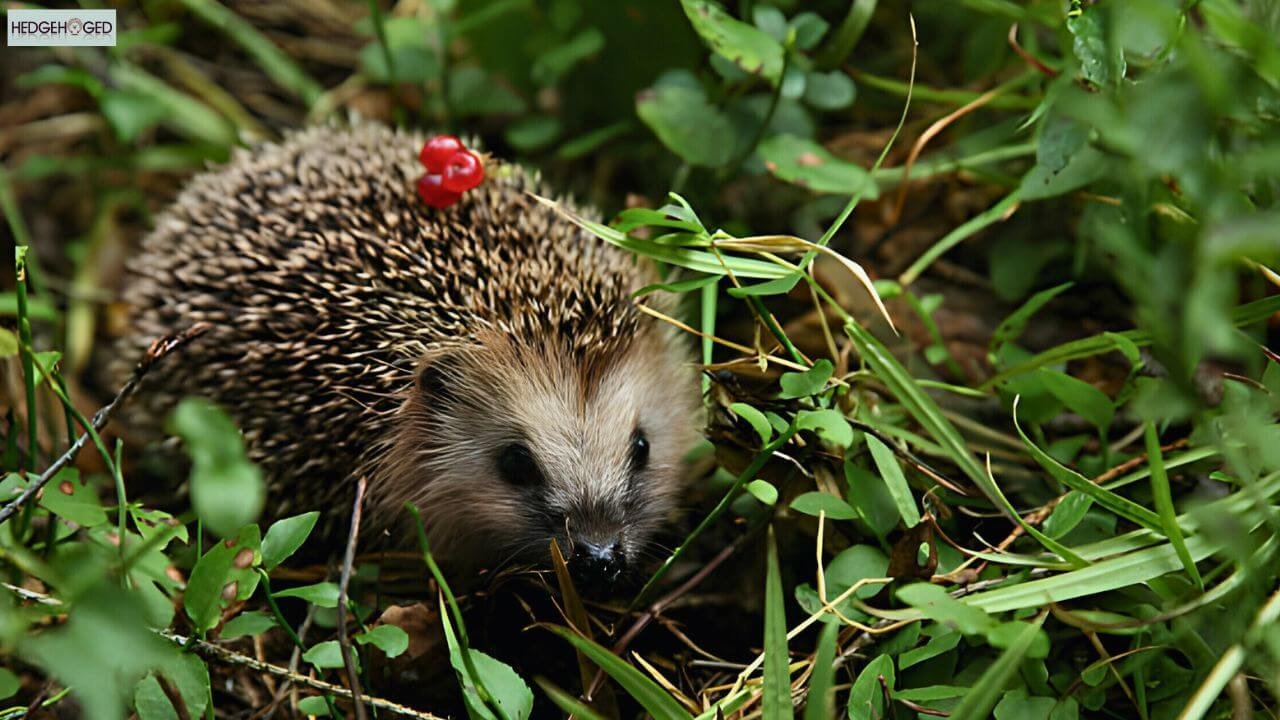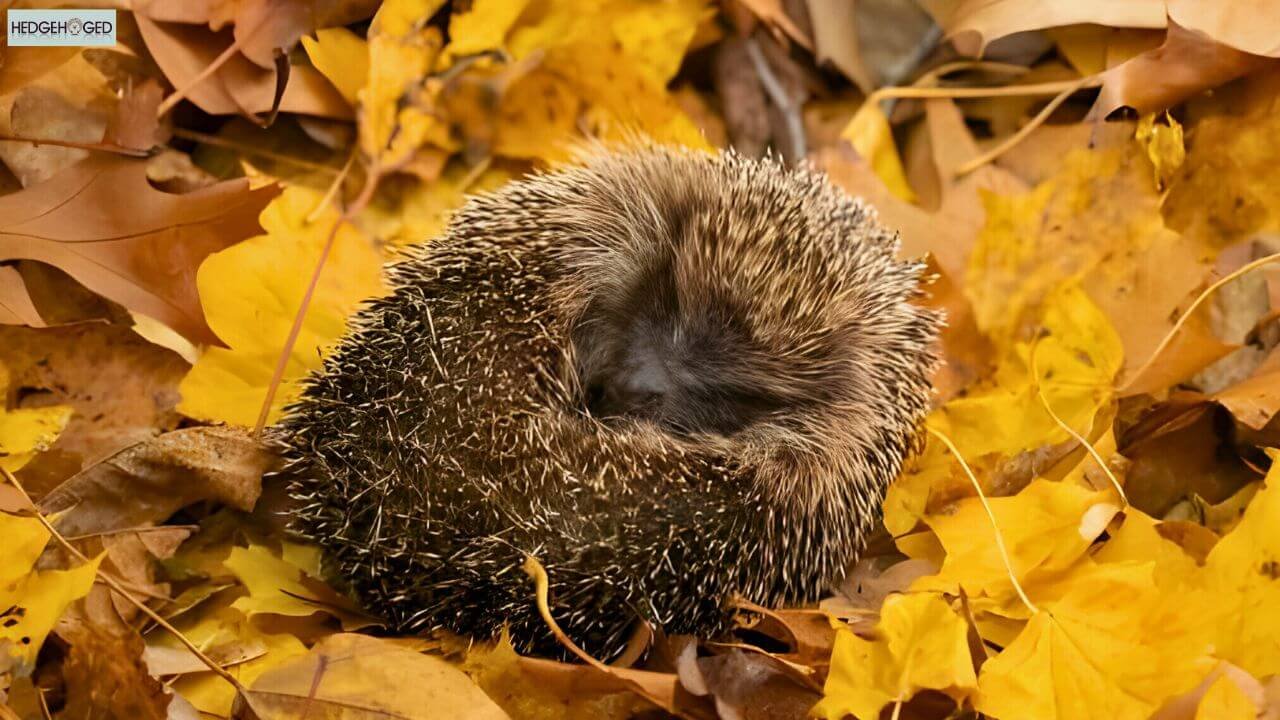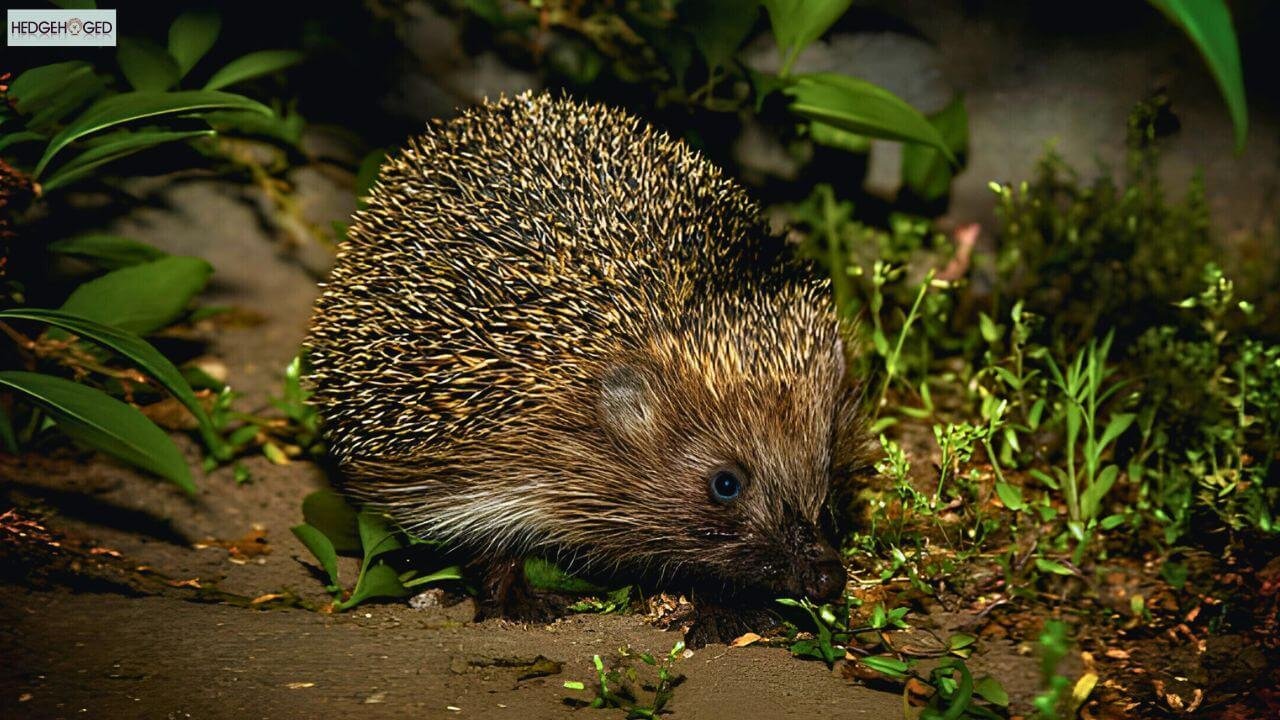You will see a variety of sleep behaviors as a hedgehog parent, particularly if you are a first-time owner. You’ll start to wonder if it ever awakens! Hedgehogs sleep for most of the day and night. This nocturnal behavior is vitall to their survival and activity.
Are hedgehogs nocturnal? Yes, hedgehogs are nocturnal creatures, they spend the day sleeping and conducting their business at night. Have you ever wondered, though, why they lead this lifestyle? Are they particularly well-suited to living in the dark?
To help you better understand your hedgehog and build a stronger bond with it, this guide will dissect its sleeping habits and go further into its personality. We’ll also explore the causes behind their nightly activities and the modifications.
What Does It Mean To Be Nocturnal?
Hedgehogs take care of business at night and sleep throughout the day. During the night, their primary activity is eating. For their size, hedgehogs need to consume a lot of food. In a single night, they can consume up to 100 beetles and other invertebrates.
They cover a considerable distance each night up to a mile to obtain all of this food. They like to move through long grass, undergrowth, and hedgerows. There is a fair possibility of finding food and protection from predators in these settings.
Hedgehogs court and mate at night (a pretty noisy activity that you may have overheard) in addition to all of this eating. At night, they also construct nests and hibernacula.
Are Hedgehogs Nocturnal?
Hedgehogs indeed have nocturnal sleeping and waking schedules. As a result, the majority of the young creatures’ slumber occurs during the day. As for the remainder of their daily tasks, such as eating and exercising, you can count on them to finish everything as night falls.
Hedgehogs can snooze for up to eighteen hours a day. They frequently overlap during a single sleep cycle. This gives them six hours a day to engage in their hedgehog-related hobbies. As one might expect, the focus of these activities is locating food and then passing it on.
The majority of hedgehogs are nocturnal. It gets dark when they wake up. They can be found sleeping curled up in bushes, beneath a leaf pile, or in any other shaded spot in your yard where they can make a nest.
Therefore, anyone considering getting a hedgehog as a pet should be informed of the commitment just six hours of caressing. Some of you may find that annoying, but others may be grateful for it and perhaps wish it were the same with their children.
Nocturnal in the Wild
In the wild, hedgehogs are nocturnal creatures by nature. During the valuable nighttime hours, wild hedgehogs go on excursions to find food. Hedgehogs are known to travel great distances in search of food at night, often covering a great deal of territory. Hedgehogs have always lived in the dark. A wild hedgehog considers darkness to be the beginning of the day.
Night time Noise
Due to their nocturnal nature, hedgehogs can make noisy companions at night, particularly if you’re attempting to catch some shut-eye to rise early for work the following day. A hedgehog may make loud laps around his cage or even use a running wheel in addition to eating. In case you have trouble falling asleep, a hedgehog might not be the best companion for your way of life.
Why Are Hedgehogs Nocturnal?
Animals have become nocturnal for a variety of causes. The hedgehog may be affected by some of these.
1. Less Rivalry for the Prey
Some animals are thought to have evolved to be more active at night to have less competition for their prey. The hedgehog may fit this description. The shrew, the closest relative of the hedgehog and the other main insectivorous mammal in the UK is not nocturnal. Furthermore, a large number of our amphibians and insectivorous birds are not. As a result, the hedgehog will face considerably less competition at night for its favorite food.
2. To Stay Clear of Predators
There is a theory that suggests nocturnal behavior in early mammals originated as a defense against large carnivorous predators such as saber-toothed tigers. The hedgehog was present during the saber-toothed tiger’s era, having developed more than 15 million years ago. However, this isn’t a wise tactic for hedgehogs in Britain these days. The primary predator of hedgehogs in the UK, badgers, are likewise nocturnal animals.
3. To Stay Away from Intense Heat
While European hedgehogs don’t mind excessive heat, other hedgehog species are found throughout most of the world, thus in hotter climates, it makes sense for them to sleep during the day and be active in the chill of the night. In his natural habitat, the Africa Pygmy Hedgehog would undoubtedly find success with it. And it’s just one more reason why hedgehogs aren’t suitable companions.
Factors Influencing Nocturnal Behavior
To appreciate hedgehogs’ biological niche and maintain their well-being in captivity, it is crucial to comprehend the variables driving their nocturnal activity. Hedgehog activity patterns are significantly affected by numerous physiological, behavioral, and environmental factors. We can learn more about how hedgehogs adapt to their environment and survive in both natural and anthropomorphically altered habitats by looking at these variables.
Factors Influencing Nocturnal Behavior in Hedgehogs
- Evolutionary History and Natural Habitat
- Predation Risk
- Thermoregulation
- Food Availability and Foraging Behavior
- Social Interactions
- Circadian Rhythms and Biological Clocks
- Human Interference and Urbanization
- Seasonal Variations
- Individual Variability and Personality Traits
- Physiological Factors
The Active Hours
Hedgehogs are nocturnal creatures, hence they are typically active at dusk or sunset. As such, you need to be mindful of the lighting when owning a hedgehog. Excessive light exposure in their enclosures will prevent them from falling asleep. Try to turn down the lights when it’s time for them to wake up.
Sleeping Pattern of Hedgehogs
Hedgehogs spend most of their day sleeping, thus they require cozy sleeping arrangements. A hedgehog will often sleep for eighteen hours without opening its eyes. However, the type of hedgehog and its surroundings have an impact on its sleeping habits. Even the breeds that occasionally wake up only bother eating and going back to sleep.
We advise against attempting to wake up your hedgehog in the middle of sleep as it may get aggressive and may even brandish its quills. The weather also affects the sleeping habits of hedgehogs. They enjoy the warm weather and get between eight and fourteen hours of sleep in the summer.
Their nests are often constructed when they are housed in an open space. Hedgehogs sleep somewhere else for a few days in the summer and then return to the same nest. Hedgehogs will sleep for up to eighteen hours a day during the winter. They don’t like the cold, which explains why. To save energy, they also sleep longer.
Hedgehogs’ bodies slow down significantly during hibernation, so this is something to be aware of. Their body temperature and heart rate both sharply decrease. Thus, don’t let your hedgehog hibernate for an extended time, and keep a watch on it.
What Do They Do When They Wake Up?
In general, hedgehogs live alone. They do not interact socially with other hedgehogs. It is best to provide each hedgehog its own house, even if you have multiple of them. To be more precise, no more than two females should live in the same home.
When they are awake, though, they may be incredibly jovial and joyful. Hedgehogs eventually form very strong bonds with their owners, even if it could take several weeks or even months. Games and treats are crucial when attempting to develop this bond.
A typical hedgehog will search for food and water throughout its waking hours, which are typically in the evening. If it is housed in a cage, see to it that it has access to food and water as soon as it awakens.
Adaptations for Nighttime Activity in Hedgehogs
In low light, their keen hearing and strong sense of smell let them to identify possible dangers and food sources. Their nocturnal lifestyle minimizes their exposure to daytime predators and allows them to forage safely. Furthermore, the evolutionary past of hedgehogs has made them superb hunters during the night.
Due to their innate need to be active at night, they take advantage of their nocturnal eyesight to hunt small prey such as insects throughout the dark. They may avoid competing with nocturnal creatures thanks to this behavioral adaption, which also increases their chances of effective foraging.
How About Hedgehog Babies?
A hedgehog will sleep more the younger it is. Hedgehog babies can snooze for up to 20 hours at a time. This is because they are still developing, much like a newborn person. A baby hedgehog needs the ideal surroundings to sleep more soundly. Ensure that the temperature is kept warm, and consider getting them a blanket.
An Average Hedgehog’s Day
Hedgehogs usually wake up in the evening and take a little while to feel better before they are ready to play. Hedgehogs need to take a quick snooze after playing for a while. Hedgehogs will constantly seek out a place to hide and feel safe, whether it’s under your lap or in their cage. You may make your hedgehog feel more at peace and yet spend time with them by hiding it in your pockets.
Treats are an excellent technique to get hedgehogs to come out of hiding during the day. Perhaps you might entice them to play with you by offering them a mealworm or some tuna. They will soon become accustomed to your schedule and be content to wake up and play. Just be mindful of the quantity—one or two is more than sufficient.
FAQs
Q1. Are hedgehogs nocturnal?
Yes, hedgehogs are indeed nocturnal animals. They are most active during the night, spending their days sleeping and conducting their activities after dusk.
Q2. What do hedgehogs do at night?
Hedgehogs engage in various activities at night, including foraging for food, mating, constructing nests, and exploring their environment. They have evolved to be efficient hunters and navigators in low-light conditions.
Q3. Why are hedgehogs nocturnal?
Hedgehogs have adapted to a nocturnal lifestyle for several reasons, including reduced competition for food, avoidance of predators, and efficient thermoregulation. Their nocturnal behavior also aligns with their instincts and evolutionary history.
Q4. How long do hedgehogs sleep?
Hedgehogs are known to sleep for extended periods, sometimes up to 18 hours a day. Their sleeping habits might change based on several variables, including age, health, and surroundings.
Q5. Can hedgehogs adjust to a diurnal schedule?
While hedgehogs are primarily nocturnal, some individuals may adjust to a slightly more diurnal schedule in captivity, especially if their environment lacks natural light cues. However, they typically remain most active during the night.
Conclusion
In conclusion, Are hedgehogs nocturnal? Hedgehogs are nocturnal animals that spend most of their days sleeping and their nights performing nocturnal tasks including mating, foraging, and building nests. Numerous factors, including their evolutionary history, the likelihood of predation, and thermoregulation, influence their nocturnal behavior. Hedgehog owners must comprehend these elements to give their pets the proper care and guarantee their well-being while they are in captivity.




